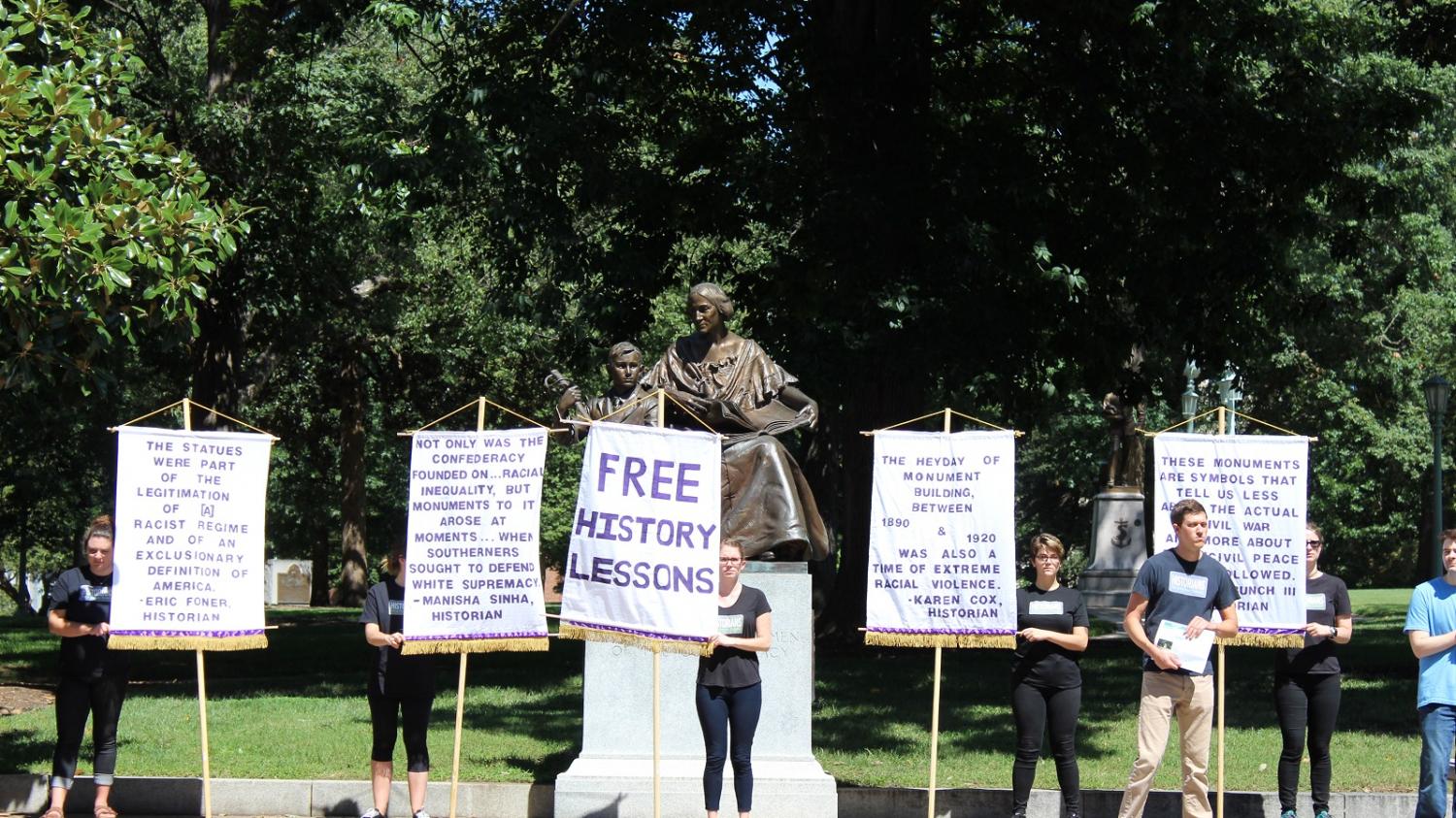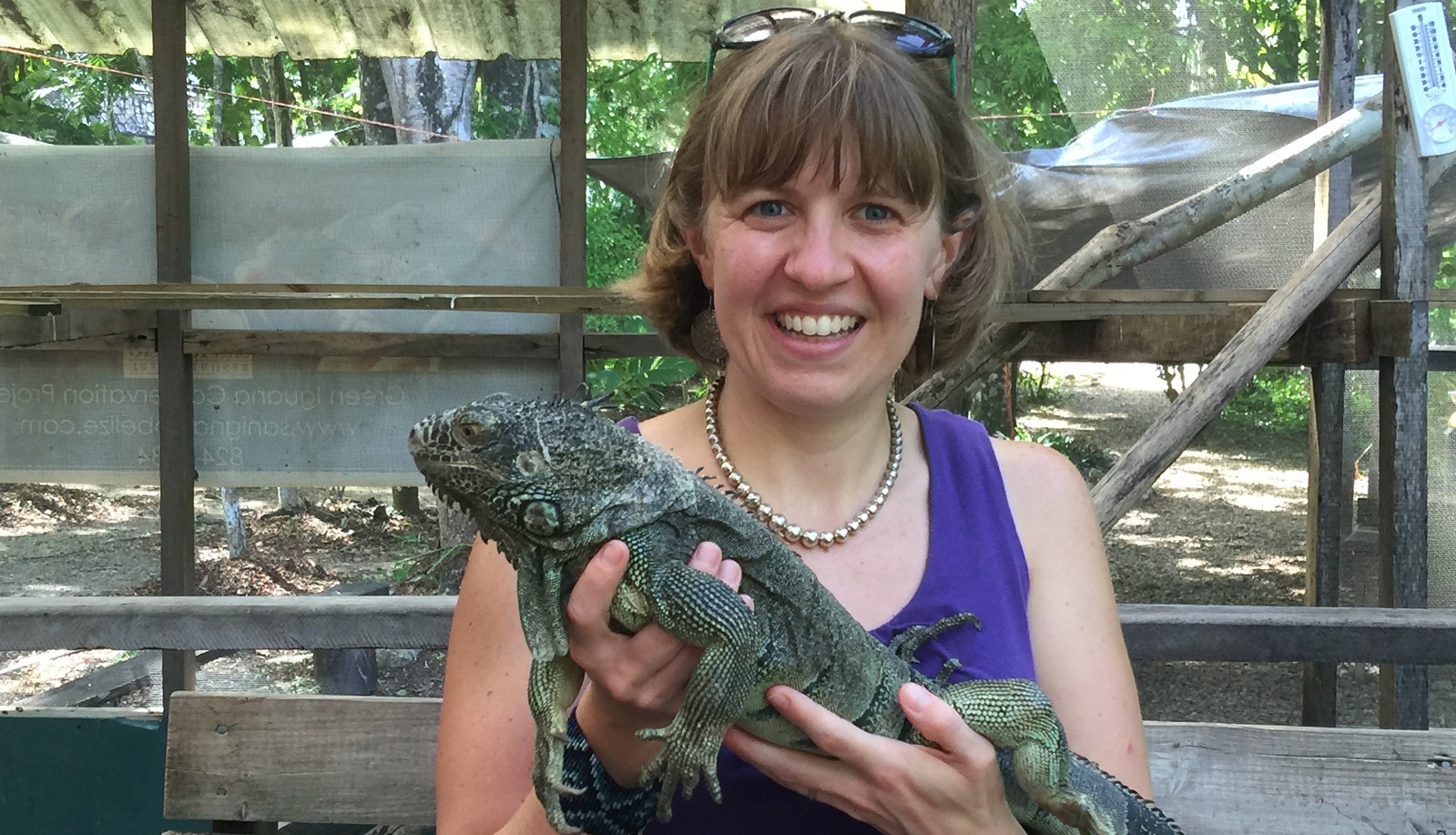
Think and Do
Graduate students in the History Department have the opportunity to work with faculty on research and engagement in a variety of venues.
Faculty Publications More

Dr. Frederico Freitas
Today, one-quarter of all the land in Latin America is set apart for nature protection. In Nationalizing Nature: Iguazu Falls and National Parks at the Brazil-Argentina Border, Frederico Freitas uncovers the crucial role played by conservation in the region's territorial development by exploring how Brazil and Argentina used national parks to nationalize borderlands. By tracking almost one hundred years of national park history in Latin America's largest countries, Nationalizing Nature shows how conservation policy promoted national programs of frontier development and border control.
Dr. Freitas is an assistant professor of digital and Latin American history at NC State. His research deals with the history of Latin America— especially Brazil—in the nineteenth and twentieth centuries. His focus is on the intersection between environment and society, with a particular interest in the spatial and social implications of environmental policies.
To learn more: Read Dr. Freitas' Nationalizing Nature Blog post or view his video.
History Faculty Interview Series Watch the Video Interview

Dr. Alicia McGill
Dr. Alicia McGill is an Assistant Professor in the Department of History and contributes to the PhD program in Public History. She has always been fascinated by human diversity in the past and present and the ways that people connect with history and have conducted archaeological and cultural anthropology research in Cyprus, Honduras, Belize, Indiana, Pennsylvania, and Colorado. Prior to teaching at NC State, she was a visiting assistant professor at Indiana University, South Bend.
She has conducted extensive research in Belize, focusing on the ways constructions of the past are promoted through public venues like tourism, education, and archaeological practice, and how these constructions shape the cultural production of young citizens. She is particularly interested in the ways messages about the past are interpreted and negotiated by teachers and youth as they navigate racial and ethnic politics in the present. Her most recent publications focus on national cultural diversity rhetoric in the Belizean state and intersections between colonial dynamics, community connections with the natural landscape, and local heritage work.
Faculty Fermentology Webinars
Fermentation in Ancient Mesopotamia, Beer, Bread and More Beer
In this talk, Tate Paulette explores the foods and, especially, the fermented foods of ancient Mesopotamia. He looks at ancient recipes, royal inscriptions, administrative records, archaeological remains, artistic works, and more on a culinary tour through the famous “land between the rivers.” Particular attention is devoted to beer, the beverage of choice in ancient Mesopotamia."
Why Do People Care for Sourdough?
Using one family’s story and survey responses from hundreds of Sourdough Project participants, Matthew Booker speculates about why people carry sourdough cultures with them around the world and down through generations. Maintaining sourdough in our kitchens pairs human and microbial cultures in a multispecies community with intriguing implications for both human history and biological diversity.